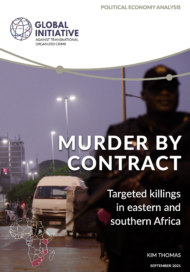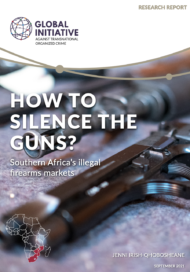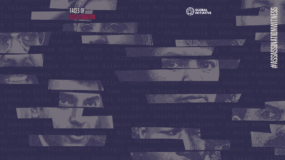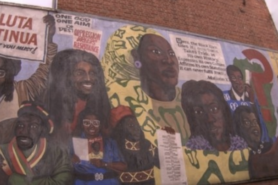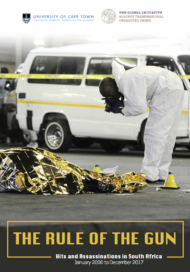Posted on 30 Sep 2021
If you were a candidate standing for political office, a whistleblower in possession of an explosive secret, or an activist campaigning for your community, would you continue to fight for justice if it meant risking your life? Or the safety of your family? For many, the threat of targeted killings – including those outsourced to hitmen – is not a hypothetical threat but a lived reality.
This report, from GI-TOC’s Observatory of Illicit Economies in East and Southern Africa, aims to quantify the frequency and form of targeted assassinations in South Africa, Kenya and Mozambique.
The effects of targeted killings go far beyond the pulling of a trigger: they threaten a country’s security, politics, judiciary and economy, and create an atmosphere of fear and intimidation that warps the fabric of society.
In South Africa, in September 2021 alone, an ANC ward councillor in Mabopane, Pretoria, was shot dead; three women were injured in a drive-by shooting at an ANC branch meeting; and a man and a woman in Soweto were murdered in what has been reported to be a revenge assassination. In Kwa-Zulu Natal, the province of South Africa which sees the greatest frequency of targeted killings a traditional leader was gunned down and another shooting claimed the lives of the son of a private security company owner and a hitman. In late August, whistleblower Babita Deokaran was murdered, in a hit believed to be connected to her role as a witness in an investigation into COVID-related contracts at the Gauteng Department of Health. Days later, a former ANC candidate for Cape Town city councillor was shot dead
In Maputo, Rwandan businessmen, former military officer and outspoken critic of president Paul Kagame, Revocant Karemangingo, was gunned down in September. Civil society groups in Mozambique have condemned the assassination and demanded the right of Rwandan communities in Mozambique to live in safety. In June, Kenyan environmental activist Joanna Stutchbury was shot dead after receiving death threats while campaigning against the destruction of Kiambu Forest, near Nairobi.
While the news cycle is inundated with reports like these, it can be difficult to get a sense of the ‘big picture’ of assassinations in East and Southern Africa: how frequent these incidents are; where they are concentrated; and whether targeted violence has risen or fallen over time.
This report brings together data on assassinations from GI-TOC’s years-long monitoring of targeted violence in southern Africa. The data provides an opportunity to compare the methods, location, fatality rate and price of targeted killings across the region. The methodology developed for this research also forms the basis of the GI-TOC’s global monitor of assassinations, earmarked to be launched in November 2021.
Our analysis found that politically-motivated hits are a significant proportion of targeted killings in all three countries, as a way for corrupt figures to eliminate political rivals and abuse power. Organized crime hits occur as a result of power struggles within the illicit economy and the silencing of whisteblowers, activists and witnesses. The lockdowns and restrictions on movement as a result of the COVID-19 pandemic also seems to have (at least temporarily) repressed levels of targeted violence.
The research and methodology undertaken for this report provided the basis for the creation and development of the GI-TOC’s global monitor of assassinations, which is earmarked to be launched in November 2021 (Sign-up to the Assassination Newsletter to get regular updates on the launch event).
